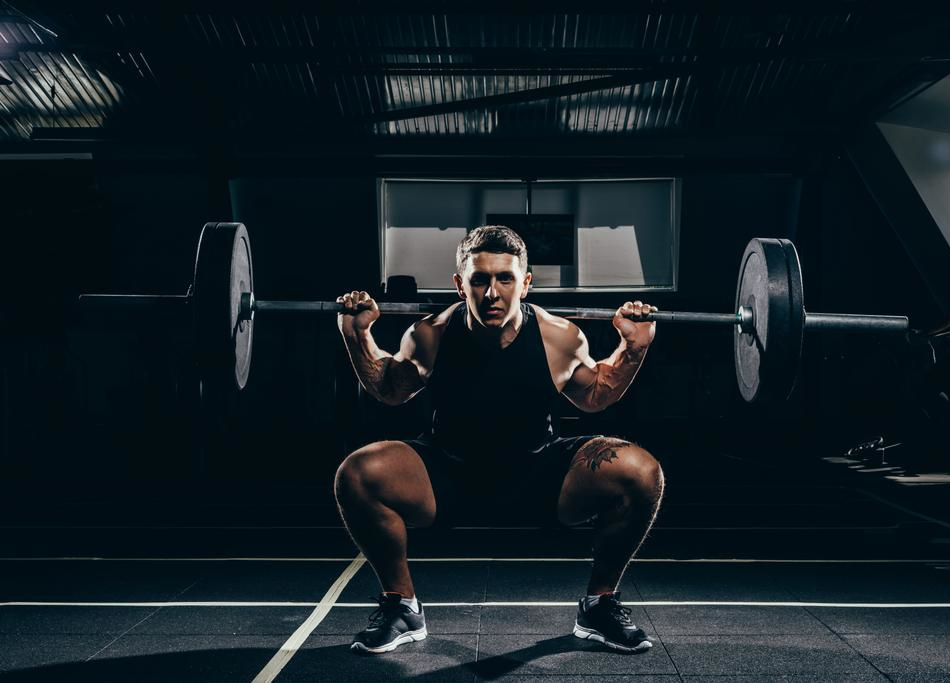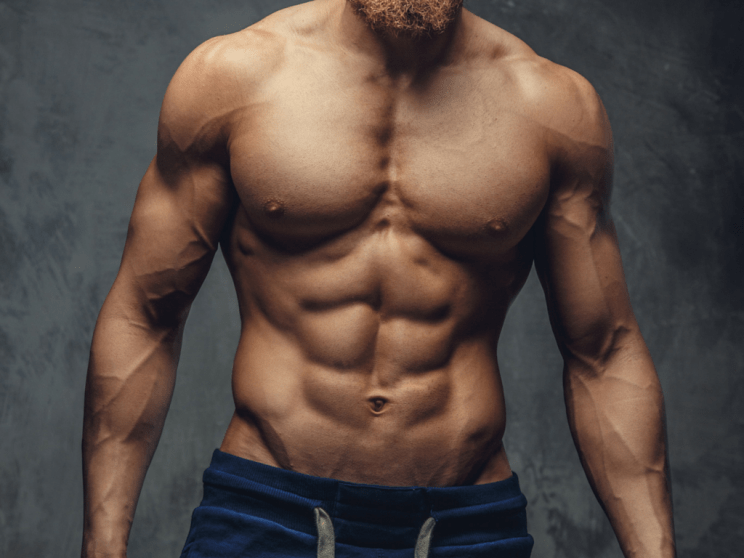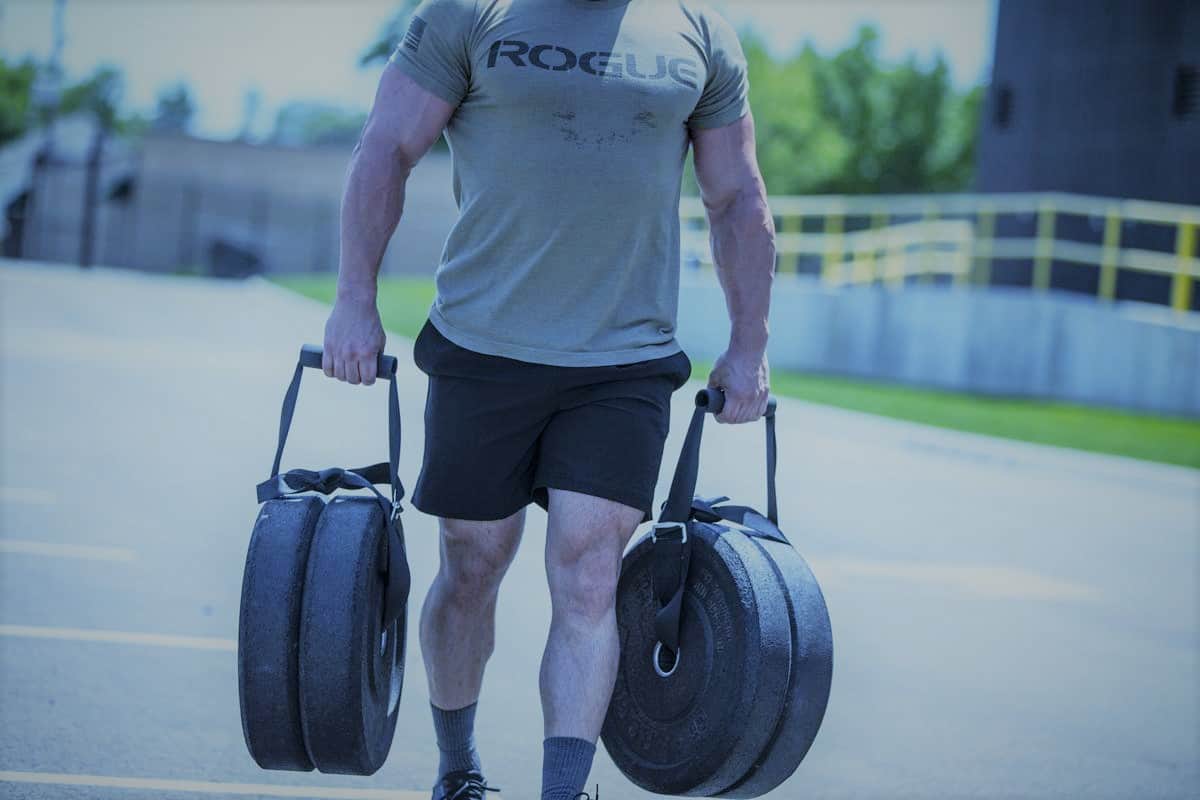If you’re a new parent, and you love powerlifting (or if you’re quite young, and are reading this article wondering if you’re ready to start training), then chances are that you’ve considered asking yourself at what age it’s OK to start powerlifting. When I was first introduced to the gym at the tender age of, like, 13, I remember being told that I had to weight until I was age 15 until I could load the barbell for squats.
Other gyms allow kids to start training on any machine or weight (that they can handle) once they’re 13. Some gyms even train kids younger than that, although with strict supervision. The general consensus is that it’s okay to start powerlifting at age 6 to 8, around the same time that a child develops an interest in other sports, and around the same time they develop the motor skills to actually have good form in a lift.
It honestly depends on the child and the amount of interest
that the child is showing. If you’re a parent and you caught your kid picking
up a dumbbell or getting excited to watch daddy/mommy lift, then chances are
you might be thinking about slowly incorporating them into your training, or
seeing how they like it.
What about stunted growth?
No, weight training does not stunt growth permanently. Children that go through gymnastics training and martial arts training early on are often put through the same amount of resistance as a child with a barbell on their back. And no, that’s not the only reason why gymnasts are short. They’re short because the Olympics picks the best gymnasts, and it tends to be easier to be a gymnast when you’ve got the right proportions for it. Gymnastics, like other sports, often also breeds eating disorders, especially among girls, and poor nutrition can lead to a host of issues.
If your kid eats right, and if you or a professional train them responsibly (i.e. not to compete, and not with the same program you’d use for an adult), powerlifting or weight training, in general, will not stunt their growth or negatively impact their physical development. Instead, it’ll help them by giving them body confidence, helping them learn to coordinate themselves better, and making them stronger – all good things. But remember! Kids are kids. They want to try things out. They want to play. Powerlifting is interesting to them because they saw you do it, or they saw someone they admire lift a lot of weight. Indulge them, but don’t expect them to do this for a year, let alone forever.
Powerlifting, Not Weightlifting or Bodybuilding
It’s important to note that this article will not encompass the effects of weightlifting or bodybuilding on a kid, although it will mention weight training (which is a catch-all for training with weights). Bodybuilding is nonsensical for children because it relies on muscle growth, which is incredibly limited before the onset of puberty, and no one cares about the proportions of an 8-year-old’s arm. If your kid expresses an interest in bodybuilding, get them in on weight training – but ignore the part where they’re trying to diet down to 3% body fat, or start training until failure.
Similarly, weightlifting is a very different sport from powerlifting. While powerlifting was born from weightlifting, weightlifting is far more complex. Historically, plenty of children start weightlifting at an early age, and countries like China famously pick kids with talent in the sport at a very early age.
I don’t know anything about training someone in weightlifting and couldn’t tell you whether it’s a good idea to start training your kid in weightlifting. I’d argue if you know someone who is a professional weightlifting coach, then it’d be a fun activity to try with a yardstick. It takes a lot of coordination to clean or snatch a barbell.
Powerlifting is a much simpler sport, and it’s safe to teach your child how to power lift as long as you’re being careful with progression and training frequency. Without the chemical means to produce much muscle, most of a child’s growing strength will come from neural adaptation – their bodies will simply learn to better and more efficiently move weight. However, these will be modest gains.
Motor Skills are Important
Children should only start lifting around the same time they’d typically start getting into other sports, which is after their most basic motor skills have developed. In general, this is age 6 to 8. That’s why 6-8 is a good age to start powerlifting or weight training in general. This isn’t because a 5-year-old is going to break their back with a 10-pound bar, but because they’re far less likely to have the neurological capacity to get their muscles under control enough to perform any lift safely and properly.
Again, I’m not a doctor or pediatrician. Consult your own healthcare professional and make sure your child gets a checkup and meets with a coach before they start handling weights.
A much better metric is to get a light stick of some sort and coach your child yourself on how to squat, deadlift, and bench press. If they’re teachable and understand your instructions and show good form, then they’re ready to start training.
Most Gyms Allow 13+
The reason gyms typically don’t let kids younger than age 13 train is because they’d get sued if they let a young kid go into a gym and start playing with heavy weights. That and gyms typically don’t always have the ability to provide adequate supervision of young children.
If your child wants to train with you and start powerlifting, make sure they train with you, and that you’re always aware of what they’re doing every single second that they’re doing it.
Competing at a Young Age
The youngest that the IPF allows people to compete is age
14. If your child is eyeing this, then you can help them prepare. However, note
that children are children. You don’t need to worry about supplementation,
complex training programs, or necessarily even peaking. Just let your kid have
fun.
Monitor their progress, help them progress (very very slowly), and be an encouraging and happy parent every single step of the way. There’s no incentive for breaking records or winning competitions as a very young powerlifter. If they have the drive to win on their own, then just do your job of making sure they don’t get hurt – that goes without saying, of course.
Always Consult a Pediatrician First
If you’re not a doctor, go see one before you let your child
learn how to train with barbells. Powerlifting is a fun sport, but it’s still a
sport, and kids should get a thorough check-up with a pediatrician before they
get into any sport. Any pediatrician will tell you it’s a great idea to get
your kid into the same sport you’re into, provided they have the medical
all-clear to do so.
Do Not Train to Compete
No child should be trained to compete by a parent. I honestly think this needs to be stressed in particular. It’s great to get your kid interested in your sport, and to responsibly educate them on how to lift weights, and to even help them program. But don’t get caught up in all of it and begin dreaming of breaking records and competing through your kid. Seriously, be careful. Young kids, in particular, will do anything they can to impress their parents, and if you’re rewarding your child with attention and love for being strong (which is a great, positive thing), remember to maintain that enthusiasm for when they decide to dedicate themselves more fully to something they’re more interested in in the future, regardless of how much it bores you.
Similarly, don’t train your child to get competitive through powerlifting. It should be their own choice to decide to start powerlifting with the intention of competing at a meet. And they need to know that. When they approach you with the idea of competing, make sure they understand what it means and whether it’s something they really want to do. They can keep training to have fun, or be strong, or maybe transition into other sports they haven’t tried yet. Competing means going an extra step beyond the usual to dedicate oneself to something, and while it’s great to foster that kind of discipline in a child, it should be something you’re sure they chose for themselves.
Above all, support your child, rather than letting their
endeavors support your ego. That should go without saying, but I figure it’s an
important disclaimer.
Want to lift heavier and avoid injuries? 💪🔥
Download our FREE '5-Minute Warm-Up Routine for Maximum Lifting Performance' and get primed for every workout!
Click below to grab your copy now!👇
👉 Download the Free Guide



